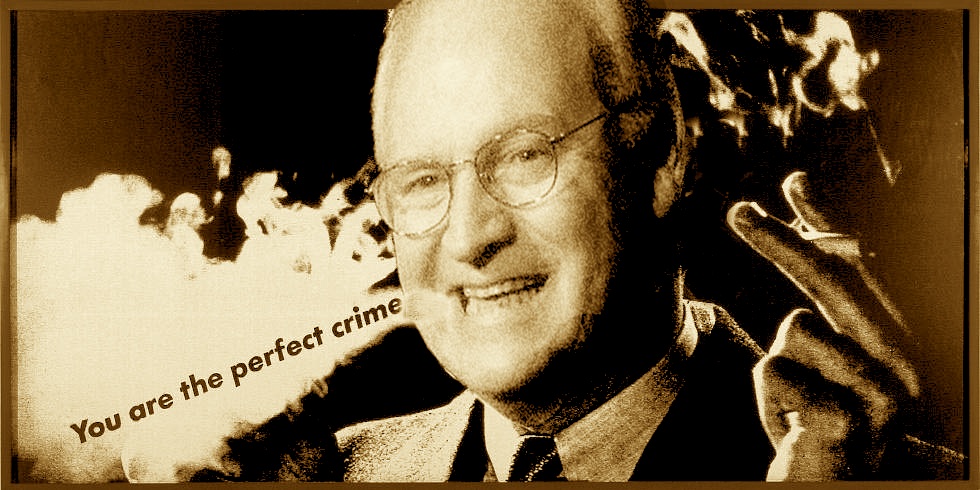
We’ve all read stories about American citizens arrested by Secret Service agents for essentially voicing dissenting political opinions within earshot of the Vice President — the most memorable being the Katrina victim that told Cheney to go f**k himself during a photo op visit to the Gulf region. Invariably, the charges are dropped and the detained are set free once Cheney’s motorcade has left the scene. But the sheer volume of these arrests is pretty astonishing. If you Google “Cheney Secret Service Protester Arrest” you get 411,000 results. One of those protesters — a Colorado physician named Steven Howards — filed a lawsuit for wrongful arrest. Revealed in the arresting agent’s depostions is just how subjective and specious, not to mention quite possibly illegal and altogether Un-American, this practice of silencing dissent with false arrest is when you put those involved under oath:
DENVER — The arrest of a man named Steven Howards in June 2006 after he approached Vice President Dick Cheney at a Colorado ski resort and denounced the war in Iraq might have seemed, at the time, no more than a blip on the vice president’s schedule.
But now the blip has become a blowup, with Secret Service agents — under oath in court depositions — accusing one another of unethical and perhaps even illegal conduct in the handling of Mr. Howards’s arrest and the official accounting of it.
The revelations arise from a lawsuit Mr. Howards filed against five Secret Service agents, accusing
them of civil rights and free-speech violations. They offer a rare glimpse into the inner workings of the Secret Service, which usually wears the standoffish, plainclothes cool of its mission like a cloak of invisibility.
The agent who made the arrest, Virgil D. Reichle Jr., said in a deposition that he was left hanging with an untenable arrest because two agents assigned to the vice president had at first agreed with a Denver agent that there had been assault on Mr. Cheney by Mr. Howards, then changed their stories to say that no assault had occurred.
Mr. Reichle, who did not witness the encounter, said in his deposition that he believed the vice president’s security detail had wanted the Howards arrest to go away so that Mr. Cheney would not be inconvenienced by a court case.
Mr. Cheney has not been deposed, and his involvement in the arrest remains uncertain. But one of the three agents assigned to him, Daniel McLaughlin, said in his deposition that Mr. Reichle’s description was backward.
Mr. McLaughlin said Mr. Reichle, who has since been transferred to Guam, asked him in a call several hours after the encounter to say that there had been an assault to bolster justification for the arrest. MORE

